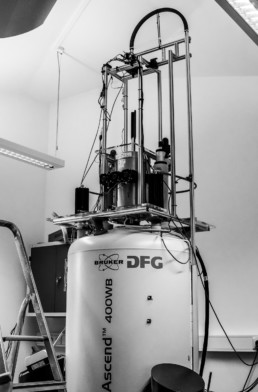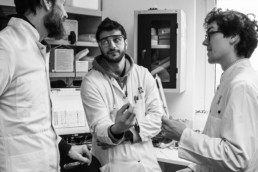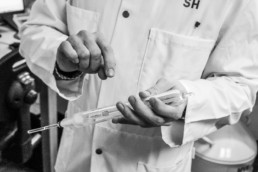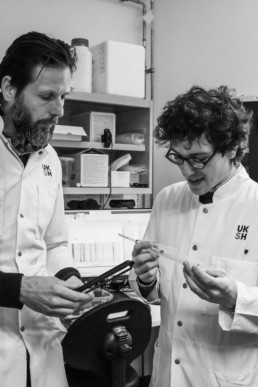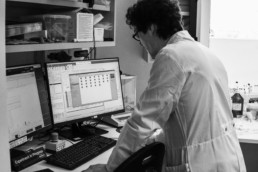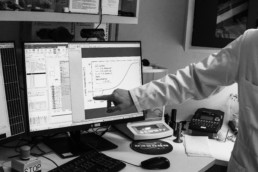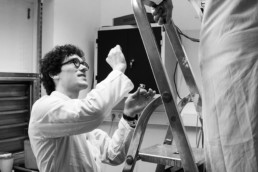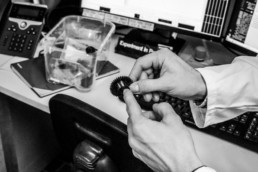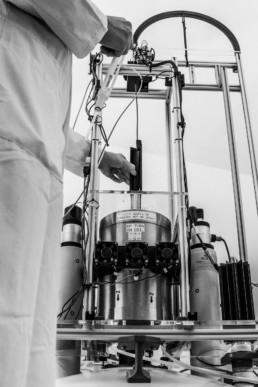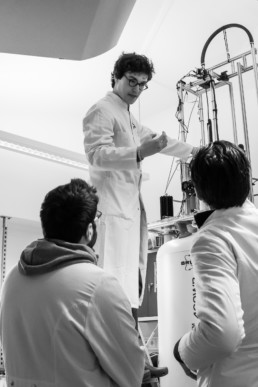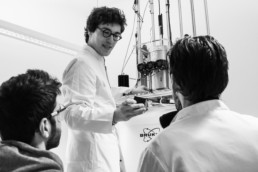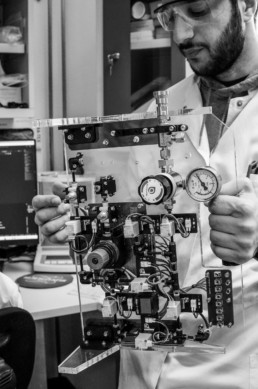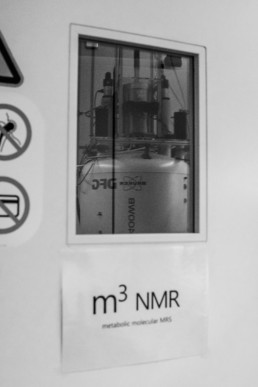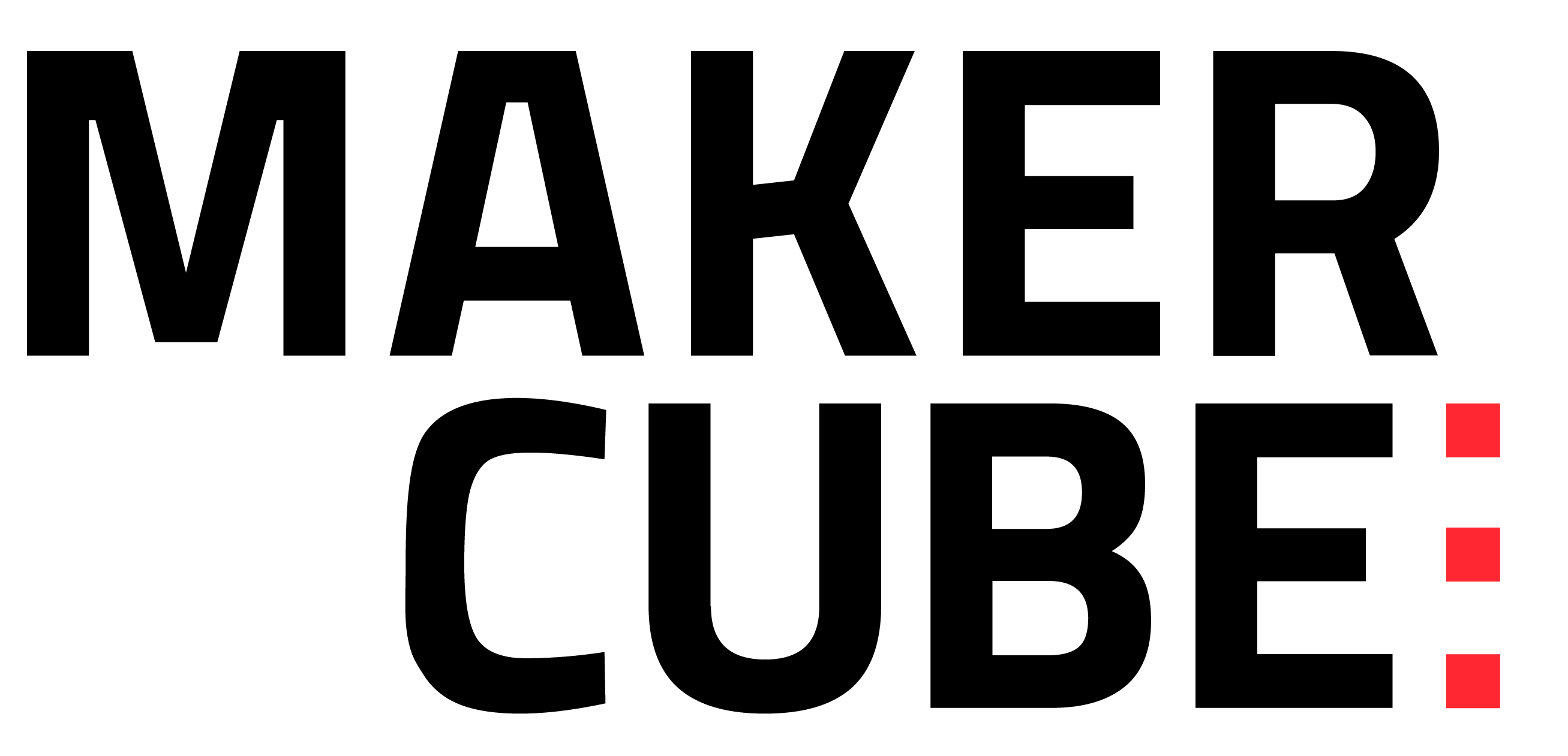
Magnetic resonance measurement in the nanotesla range
We supported the ROCKET-400 project as part of the CAU Kiel validation fund. The funding has now been completed and the project is in the prototype phase.
The ROCKET-400 system is a partially 3D-printed electro-mechanical device with which novel magnetic resonance measurements can be carried out automatically, quickly and reproducibly down to the nanotesla range. It allows the investigation of molecular spin systems in magnetic fields over 10 (!) orders of magnitude – from nanotesla to 10 tesla. The quantum mechanical “magnetization” or hyperpolarization of dissolved molecules with para-hydrogen is also made possible.
The device is currently used on Bruker-like NMR spectrometers. At its heart is an innovative transfer system in combination with automated gas flow control. This makes it possible for the first time to investigate molecular movements on previously unattainable time scales. Among other things, this helps to better understand a new method of contrast agent production for MRI – hyperpolarization.
We recently visited the Biomedical Imaging Section’s research station to see the technology in action and analyze potential for optimization.
The devices were developed in close collaboration with doctoral students Josh Philipp Peters and Charbel Assaf and their supervisors Prof. Jan-Bernd Hövener and PD Dr. habil. Andrey Pravdivtsev – and built with the help of our technologies in our home base, the FabLab Kiel.

